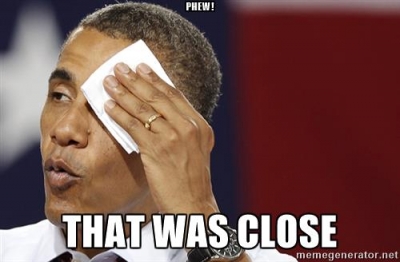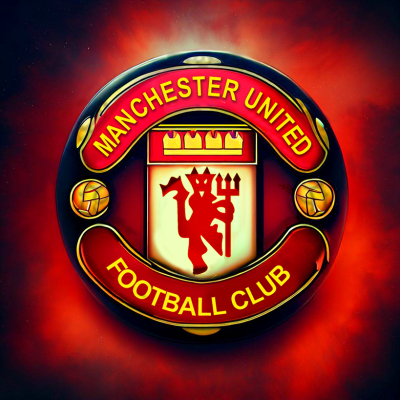Football News: Swansea City Season Review

Image from: memegenerator.net
Swansea City Season Review
This was a season of turmoil of their own making for the Swans. With Francesco Guidolin in place a summer takeover of the club by an American consortium brought fresh ideas, though kept Huw Jenkins at the helm. However, the beginning of October, with Swansea already in a relegation battle, Guidolin was replaced by the first ever American head coach in the Premier League, Bob Bradley.
Bradley did not last long and, with Swansea rooted to the foot of the table, Paul Clement was brought in from his role as Bayern's assistant manager. While there were still a few blips under him, Clement returned to the Swansea way of playing and secured survival with a couple of games to spare.
What is clear is that, while the takeover badly affected things, Swansea had been on a downward spiral for a while. The managerial choices made this season hastened that spiral, rather than precipated it. Then they turned to a man more in tune with the 'Swansea Way', after Huw Jenkins came to his senses. However, this was an avoidable situation, with the team being more than capable of a midtable finish.
Next season they need to do more than avoid relegation. The foundations are there to be be finishing in the top half, the missing ingredient last season was a manager capable of providing it. The question is whether or not Clement is the man, whether he has learnt from his time at Derby County and make the team play a style that attacks the opposition, rather than attempts to bore them to sleep.
Francesco Guidolin
Never really got much of a chance, but he at least did not leave the club in the relegation places. While the football was not the most entertaining, I doubt there is a single Swansea fan who would not have preferred his reign to the following manager. Having suffered the loss of the club captain, Ashley Williams, to Everton, and a major turnover in players, Guidolin had a lot of work on his hands to try and turn what he had from a bunch of individuals and into a team. He was fired far too early for any judgement to be made on him.
Marks out of 10: 3
Bob Bradley
What a mess this was! Swansea City have built their game on playing a patient, passing game, so they turned to Bradley and his long ball punts and kick and rush football. Huw Jenkins must have seriously lost his mind thinking that this was in anyway or by any measure a good idea. Clearly American owners + American manager must have seemed a match made in heaven, but that manager needs to understand the club he is running. Bradley never got his head round things there at all.
Trying to think of anything positive to say about his realm is giving me a headache. Nothing he did worked, his desire to take everyone and everything on head on would have been fine, if he had a great record to point to in order to engender respect. Unfortunately Bradley is a never has been. His only hope was to get results with his methods, but those methods were completely out of touch and failed to do anything other than get him a swift exit.
Could this be the worst managerial appointment of the Premier League era? Everything he did and said was a laughing stock, through no real fault of his own. Just purely because he is American. However, Bradley has reinforced so many stereotypes with the way he spoke and his lack of success. However, it was not because he was American that he failed so miserably.
Marks out of 10: -10
Paul Clement
Whisked away from a role assisting Carlo Ancelotti at Bayern Munich to rescue the Swans from relegation. Clement arrived and immediately restored the 'Swansea Way', with passing from the back and away from Bradley's long ball tactics. Fernando Llorente was still a central figure, but the balls to him were aimed at allowing him to control the ball and bring in others to the game, rather than at his head and hope to pick up second balls.
There was an immediate improvement in results and the Swans gradually clawed their way out of the relegation places, with Tom Carroll's crosses playing a big part of that. However Clement then went less direct, with more needless midfield passing, rather than just passing it into dangerous areas and looking to deliver to the head of Llorente in the middle. Instead Swansea looked like the Derby side Clement had once managed, in short terrible. Slow, passing for passing's sake was costing them and they slid back into the relegation places on the back of a run of defeats.
The last few games turned it around completely, Clement took the reins off again and let the players get forward more. Four wins and a draw in their final five matches saw them end the season in 15th with renewed optimism for next season.
Marks out of 10: 6
Neil Taylor
Struggled to make any impression on the team at all, missing just over half the games, before being sold to Aston Villa in the January transfer window. Taylor lacked attacking quality on the ball and his defending has always been suspect, which made him a weak point in the team, prior to his sale.
Marks out of 10: 1
Lukasz Fabianski
Now fully established as the number one at Swansea, the Polish international has come a long way since his days at Arsenal. Fabianski is a much more confident keeper these days, though still has that potential for errors and flapping at crosses. A competent goalkeeper for a midtable team.
Marks out of 10: 5
Kristoffer Nordfeldt
Played in the cup games and had a runout in the final league game of the season, but did nothing with his performances to put pressure on Fabianski for the number one shirt.
Marks out of 10: 0
Federico Fernandez
Fernandez struggled in the first half of the season, finding himself out of the squad altogether in some games. The Argentine defender returned to the side in January and was ever present one he had got his place back. A solid ball-playing centre back, Fernandez was not fancied by Guidolin or Bradley for his tendency to want to pass it out from the back. He was much more suited to Clement's style.
Marks out of 10: 5
Alfie Mawson
Swansea's surprise package of the 2016/17 season was the summer arrival from Barnsley. Mawson stood out once he got his chance, adding a few goals too with towering headers. His strength and tenacious play were a big part of the Swans revival. Comfortable on the ball, with a bit more pace than the man he had to replace, former club captain Ashley Williams, Mawson never let anyone down, even if he will never be a world class player.
Marks out of 10: 7.5
Jordi Amat
The Spanish defender has had a very up and down career since joining Swansea, last season epitomising his difficulties as Amat struggled to keep his place, ending the season as third choice behind Mawson and Fernandez. His erratic play is his undoing, he makes far too many basic errors to be a top class defender.
Marks out of 10: 2.5
Mike van der Hoorn
Joined from Ajax in the summer but struggled to break into the first team on a consistent basis. Never showed anything to convince he was ready for the Premier League yet.
Marks out of 10: 2
Martin Olsson
The Swedish left back joined from Norwich City in the January window, to provide more pace and attacking thrust on the left side of the pitch. While defensively suspect, Olsson is always willing to charge forward and provide some balance to the attacks. Scored a couple of vital goals as well.
Marks out of 10: 5.5
Stephen Kingsley
A defensively solid left back, the young Scot lost his place after initially beginning the season as first choice. Kingsley did manage to get a few starts in the second half of the season, but saw his chances limited as Clement looked for the more attack-minded Olsson to provide delivery from wide areas. Struggled to offer an option in the attack, when paired with Siggurdsson, who always looks to drift infield leaving space for a full back to exploit. Kingsley is not a man to charge forward and whip in crosses.
Marks out of 10: 3.5
Kyle Naughton
Naughton is a good athlete, tall, strong, quick, good in the air, comfortable on the ball but there is just something missing about him. While he has pretty much made himself Swansea's first choice right back, he never seems to be giving everything on the pitch. You are always left with a feeling that the former Tottenham Hotspur defender could do more, if he wanted to. Naughton is never quite full tilt when getting forward, there is no desperate sprint to get back if he gets caught upfield. It is always a bit underwhelming watching him play.
Marks out of 10: 5.5
Angel Rangel
The veteran Spanish right back has been part of Swansea's climb through the league and he is still there fighting for his place, though he is more and more often relegated to the bench these days. At 34 years old you have to wonder how many more seasons he has left in him.
Marks out of 10: 5
Sung-Yong Ki
This season Ki was beginning to finally establish himself as a key member of the side. The South Korean has taken a long time to truly grab a place after joining from SPFL side Celtic. A successful season-long loan at Sunderland did not really help his cause, and this season injuries did interfere with his place in the team. This season he did manage to get a regular spot in the team, when fit and available.
Marks out of 10: 5.5
Jack Cork
The former Southampton midfielder started the season as a first choice, even captaining the side in a large number of games. Then he suffered an injury towards the end of the season and then returned and was unable to break back into the team as they saved themselves from relegation.
Marks out of 10: 4
Leroy Fer
The Dutch international signed in the summer hoping to avoid a third successive relegation, after being relegated with Norwich City and then QPR in the last two seasons. Fer was a big part of the team until right at the end, when he found himself benched as Swansea rescued themselves. While he does provide copious amounts of energy and is a willing runner, Fer is not the best at ball retention. He was very much not the type of player that Swansea would have normally recruited and is a symptom of the changes that they were undergoing, before a return to the Swansea style as he was dropped to the bench.
Marks out of 10: 3.5
Tom Carroll
Carroll struggled to break into the Spurs side in the first half of the season, so jumped at the chance of a January move to the Swans. His arrival revitalised the team, with his range of passing and crossing becoming a major part of the team's play in the second half of the season.
Marks out of 10: 6.5
Leon Britton
Britton is a true shining example of a club captain, not just because the veteran has risen through the divisions with the South Wales club, being the cog that keeps everything else ticking. His return from injury and a central place in the team coincided with the club lifting its form right when it mattered. Britton does more for the club than just merely lead by example, he works hard to ensure the newer players understand the club they play for, for instance buying the whole squad a copy of a DVD about the club's rise from the bottom of the league after nearly going out of existence. Britton is the one player who can take the most credit for the club's survival, in terms of influence amongst the squad.
Marks out of 10: 8
Jay Fulton
The young Scottish midfielder is very much on the fringes of the Swansea team, not quite ready to make a spot his own.
Marks out of 10: 3
Gylfi Sigurdsson
While Britton is the man who led the team, inspired it and created the right team ethos, on the pitch Sigurdsson was the most vital player the Swans had. Since his return from an unhappy spell with Spurs, the Icelandic midfielder has returned to his best, becoming a focal point for all the attacks. His deadballs are, well, deadly, too. Sigurdsson scores and creates goals from setpieces, with an excellent delivery no matter where the ball is placed.
If he had a turn of pace to get away from a man, or some skill to get past him, then Sigurdsson would be truly top class. His passing and setpieces are amongst the best in the Prem, however he is not going to create space for himself once on the ball. However, give him the ball and runners running off him giving him options and he will create chances.
Marks out of 10: 8
Jefferson Montero
This was a terrible season for the Ecuadorian winger, whose lightning fast dashes down the left wing were very much missed by the Swans. Injury plagued him, keeping his contribution to just 2 Premier League starts all year long.
Marks out of 10: 0
Wayne Routledge
Routledge has been around the block now at the age of 32, playing for Crystal Palace, QPR, Newcastle United, Fulham, Portsmouth, Cardiff City, Aston Villa and Spurs, prior to moving to the Swans. He has never really been able to convince as a winger, strong and quick but lacking intelligence in his game, as well as an end product.
This season is a case in point, Routledge was a regular for most of the season, it was no coincidence that his dropping saw the team go on the run that saved the team from relegation. The lack of genuine quality in his play has really held back Swansea, as Routledge flatters to deceive constantly.
Marks out of 10: 2
Luciano Narsingh
Joined from PSV Eindhoven in the January window but failed to really establish himself or show anything of real quality, making just 3 starts.
Marks out of 10: 0
Nathan Dyer
Injuries disrupted the winger's season badly, making this a bit of a wasted year for him.
Marks out of 10: 0
Modou Barrow
A pacey winger, but offered little in the way of quality, just lots of headless chicken-style running with no end product. The first half of his season offered so little that he was sent out on loan to Championship club Leeds for the second half.
Marks out of 10: 1.5
Borja Baston
The summer arrival from Atletico Madrid struggled badly to establish himself as a first choice striker at the Swans. Baston became a late substitute for Llorente.
Marks out of 10: 0.5
Jordan Ayew
Moved to South Wales to join his brother Andre's former club from Championship club Aston Villa in the January window. Flatters to deceive most of the times, as he seems to work hard, seems to show great skill and industry, but somehow nothing tends to come of it all most of the time. For a forward, he does not create or score enough goals.
Marks out of 10: 1
Fernando Llorente
The Spanish striker is a forward in the mould of a traditional British target man, despite coming through the youth ranks at Athletic Bilbao. So good at his role was he there in Bilbao that he got picked up by Juventus when he let his contract run down. However, his time in Italy did not work out well, after early success, and he soon returned to Spain and Sevilla.
The summer move to Swansea has come late in his career, but the veteran forward has shown his strength and aerial ability is very suited to the English game, allowing him to be an out ball for the team when under pressure, as well as a good target for crosses. Llorente's contribution throughout the season was key, as he was able to adapt and work well under all three of the managers.
Marks out of 10: 7
Oliver McBurnie
A young Scottish forward who made a handful of Premier League appearances as a sub.
Marks out of 10: 1.5
Written by Tris Burke June 05 2017 07:38:20


